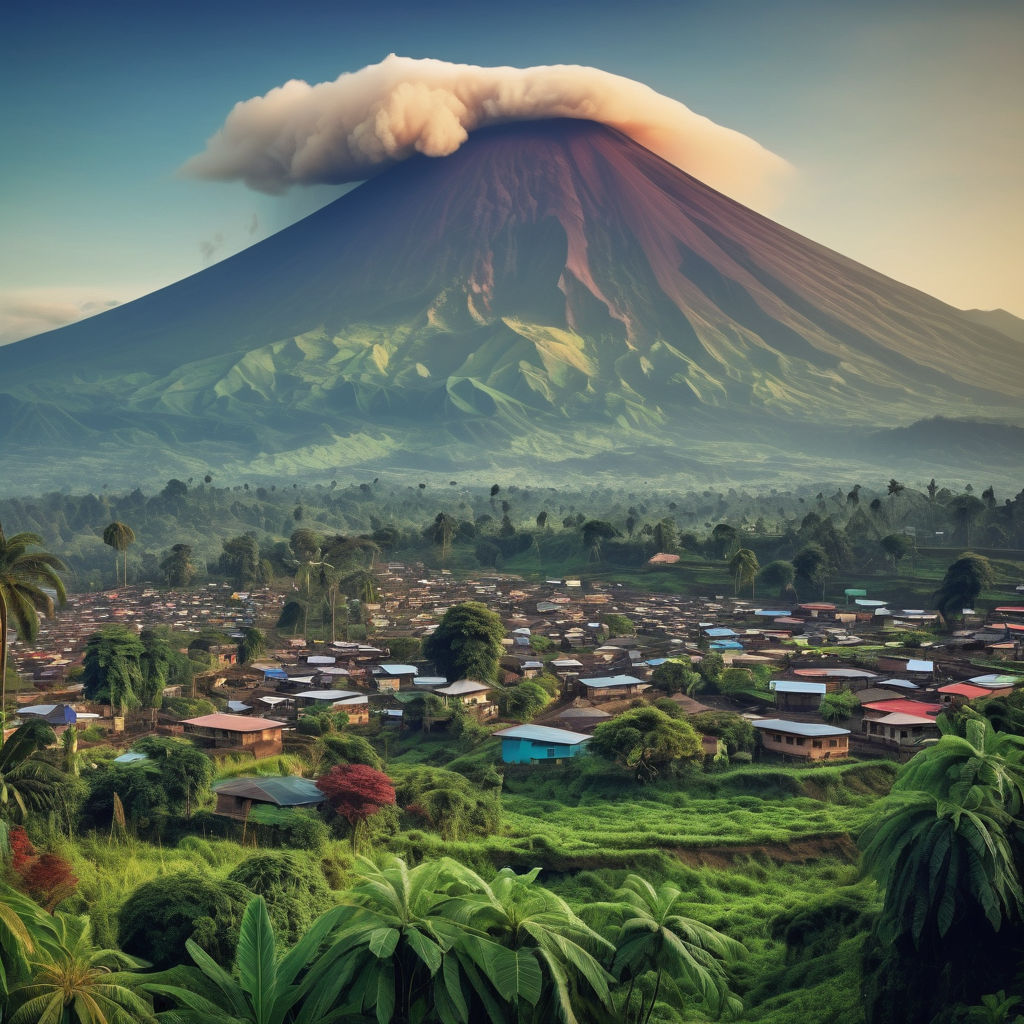Discover Cameroon: Africa in Miniature
Explore Cameroon's Rich Cultural Heritage and Cross-cultural Dynamics

Introduction to Cameroon
Cameroon, often referred to as "Africa in miniature," is a country in Central Africa bordered by Nigeria to the west, Chad to the northeast, the Central African Republic to the east, Equatorial Guinea, Gabon, and the Republic of the Congo to the south, and the Atlantic Ocean to the southwest. The capital city is Yaoundé, while Douala is the largest city and the economic hub. Known for its diverse geography, Cameroon boasts a rich cultural heritage that encompasses over 250 ethnic groups, each contributing to the country's vibrant traditions, languages, and customs.
Cross-national and Cross-cultural Understanding
Cameroonians generally exhibit a welcoming attitude towards other cultures, partly due to the country's colonial history and its diverse ethnic composition. This openness is further reinforced by educational programs and international partnerships aimed at promoting cross-cultural understanding. For instance, Cameroonian universities often collaborate with foreign institutions, facilitating student exchanges and joint research initiatives. Cultural exchanges are also prominent through various festivals and cultural events, such as the Ngondo Festival of the Sawa people and the Bafut Festival. These events attract participants from around the world, providing platforms for cultural exchange and fostering mutual understanding. Additionally, international partnerships in sectors like health, education, and infrastructure development further enhance Cameroon's cross-cultural engagement.
Interactions and Social Dynamics
Interactions between Cameroonians and foreigners are generally positive and characterized by a high degree of hospitality. Cameroonians are known for their friendliness and willingness to engage with visitors. Social behaviors in Cameroon are deeply rooted in respect for elders and communal values, which are reflected in everyday interactions. Communication styles in Cameroon can vary significantly across regions. In urban areas like Douala and Yaoundé, French and English are widely spoken due to the country's bilingual status, a legacy of its colonial history. This multilingualism greatly facilitates interactions with foreigners. In rural areas, indigenous languages predominate, but many people are also fluent in either French or English, making communication accessible.
Views on Dating and Relationships
Dating and relationships with foreigners are generally viewed with curiosity and interest in Cameroon. While traditional values still hold sway, especially in rural areas, urban centers exhibit more liberal attitudes towards dating and relationships. The influence of global media and increased access to the internet have played significant roles in shaping contemporary views on relationships. Intercultural dating is becoming more common, particularly among the younger generation. However, societal expectations still influence these relationships. For example, respect for family and community opinions remains crucial, and there is often an emphasis on finding a balance between modernity and tradition.
Marriage and Family
Marrying a foreigner in Cameroon involves navigating both cultural and legal landscapes. Legally, there are no significant barriers to marrying a foreigner, but the process requires adherence to specific regulations, such as obtaining necessary documentation and meeting residency requirements. Socially, acceptance of cross-cultural marriages is growing, although some conservative families may still express reservations. Family approval is an important aspect of marriage in Cameroon. Traditionally, families play a significant role in the decision-making process, and gaining their blessing is often seen as essential for a successful union. Cross-cultural marriages necessitate a harmonious blending of different customs and traditions, which can be both enriching and challenging. Common practices in cross-cultural marriages include incorporating elements from both cultures into wedding ceremonies and family life. These marriages often highlight the beauty of cultural diversity, with couples celebrating a range of traditions and customs.